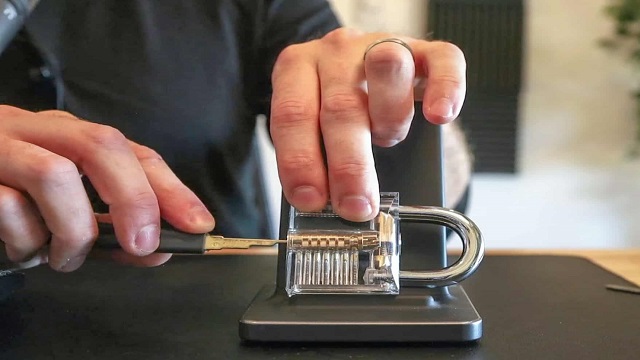Essential Tips for Beginners Learning Lock Picking
2024-09-27 10:33

Lock picking is an intriguing skill that combines elements of mechanics, problem-solving, and dexterity. For beginners, the journey into this world can be both exciting and challenging. However, there are several important considerations that novices should keep in mind to ensure a productive and ethical learning experience.
Understanding the Basics
Before diving into lock picking, it's crucial to grasp the basic principles of how locks function. The most common type of lock is the pin tumbler lock, which consists of several pins of varying lengths. When the correct key is inserted, it aligns the pins, allowing the lock to turn. A lock picker simulates this process using tools like picks and tension wrenches. Familiarizing yourself with the anatomy of locks will provide a solid foundation for your learning journey.
Choosing the Right Tools
Investing in the right tools is essential for beginners. While there are many types of lock picks available, starting with a basic set that includes a tension wrench and a few picks (like a hook and a rake) is recommended. Quality matters; cheap tools can be less effective and may frustrate your learning process. Many locksmith supply stores offer beginner kits that include a variety of picks and instructions, making them an excellent choice for newcomers.
Practice with Transparent Locks
One of the best ways to learn lock picking is by practicing with transparent locks. These locks are designed to allow you to see the internal mechanisms as you work, providing immediate feedback on your technique. Watching the pins move as you manipulate them can help you understand the relationship between tension and pin alignment. This visual aspect is invaluable for beginners trying to develop their skills.
Start with Simple Locks
As a beginner, it’s advisable to start with simpler locks before tackling more complex ones. Look for locks that are specifically designed for practice, such as those with fewer pins or those that are less resistant to picking. Avoid high-security locks at first, as they can be extremely frustrating and may require advanced techniques that are better suited for experienced pickers.
Patience and Persistence
Lock picking is not a skill that can be mastered overnight. It requires patience and practice. Beginners should expect to encounter challenges and setbacks along the way. Rather than becoming discouraged, view these moments as learning opportunities. Taking time to understand what went wrong can lead to improvement and better technique in the long run.
Ethical Considerations
Ethics play a significant role in the practice of lock picking. It's crucial to understand that while the skill can be used for legitimate purposes, such as helping a friend who is locked out or improving security, it can also be misused. Always practice lock picking on locks that you own or have explicit permission to pick. Engaging in unauthorized lock picking is illegal and unethical, and it undermines the trust between individuals and locksmiths.
Join a Community
Engaging with a community of lock pickers can greatly enhance your learning experience. Online forums, local meetups, and workshops provide opportunities to share knowledge, ask questions, and receive guidance from more experienced practitioners. Many enthusiasts are willing to offer tips and insights that can accelerate your learning process. Plus, being part of a community fosters a sense of belonging and camaraderie.
Learn from Resources
There are numerous resources available for beginners looking to learn lock picking. Books, online tutorials, and instructional videos can provide valuable information on techniques, tools, and troubleshooting common problems. Take advantage of these resources to supplement your hands-on practice. However, ensure that you are accessing legitimate and ethical materials, as some sources may promote illegal activities.
Conclusion
Learning to pick locks can be a rewarding and intellectually stimulating pursuit. By understanding the fundamentals, investing in quality tools, practicing ethically, and being patient with the learning process, beginners can develop their skills effectively. Remember, lock picking is not just about unlocking doors; it’s about understanding mechanisms, enhancing problem-solving abilities, and respecting the boundaries of ethics and legality. With dedication and a responsible approach, anyone can become proficient in this fascinating craft.
 Promotion: 5% Discount Code: 5vip
Promotion: 5% Discount Code: 5vip